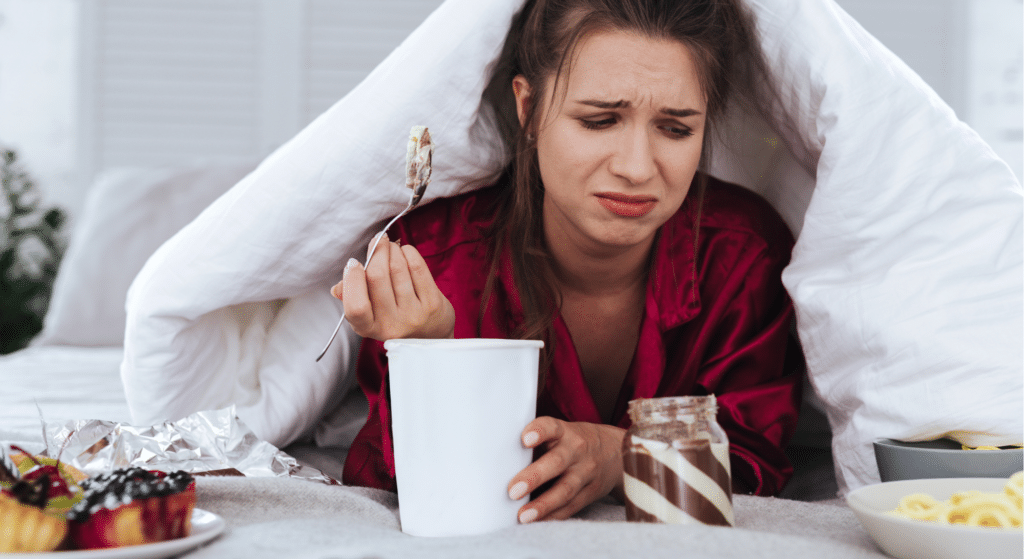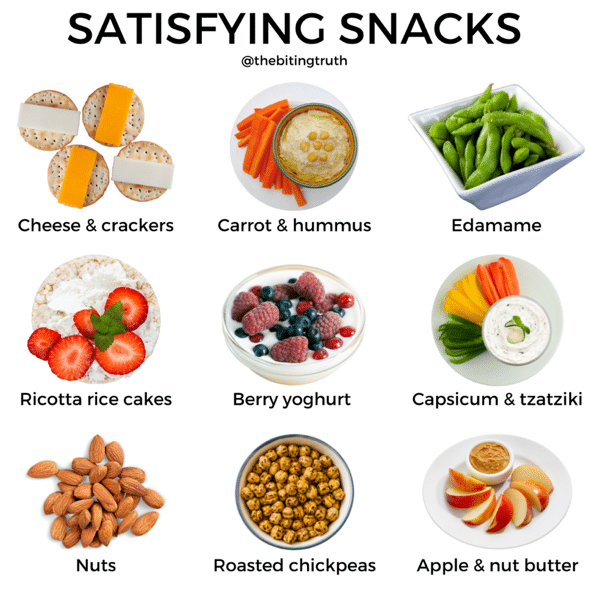
Do you find yourself walking to the kitchen every time you feel stressed or overwhelmed?
Stress often results in significant changes to our eating behaviours and can mean doing the exact opposite of what’s recommended in order to maintain a healthy weight.
There are both psychological and biological reasons behind why we eat when we feel stressed.
Psychologically, we might turn to food to alleviate negative emotions or as a coping mechanism. Biologically, stress is associated with changes in levels of the hormone cortisol, which plays a critical role in energy regulation.
What you eat – and how you eat it – during stressful periods can significantly impact your weight and your ability to cope with stress. Coronavirus-related anxiety and changes in your routine may have turned your usual eating habits upside down. Here are some tips to help you get back on track:
1. Identify the trigger
Next time the urge to stress eat hits, pause and ask yourself what triggered the urge. Even a brief moment gives you the opportunity to take a different course of action – an alternative to eating which will relieve stress without leaving you feeling guilty or frustrated (e.g., calling a friend).
2. Remove temptation
To make things easier for yourself, try not to keep hard-to-resist comfort foods in your home. Surround yourself with healthy food options and keep these at eye level in the fridge and pantry so that you’re more likely to choose them.
3. Snack healthy
If you feel the urge to eat between meals, you don’t have to fight it. Instead, choose a nutrient-rich snack and eat it mindfully. Snacks rich in fibre and protein will be satisfying and help to curb your hunger between meals.
4. Eat regular meals and snacks
Set up a routine for your meals and snacks. This will help you avoid grazing or snacking all day. Eating every couple of hours can help to keep your blood sugar levels stable, preventing dips in energy levels which might otherwise result in stress eating.
5. Prepare your lunch and snacks the night before
If you usually prepare your lunch and snacks to take into work, don’t let that habit go if you’re working from home. If you’re not usually a meal prepper, there’s no better time to start! Having your lunch and snacks prepared to eat can help to ensure you don’t graze from the fridge or pantry all day long.
6. Get up and move
No longer needing to commute to the office may mean you’re sitting even more than usual. Go for a walk, try an online yoga class or something else active to clear your head and take you away from the kitchen.
Bottom Line
Each individual’s triggers for stress eating will be different, requiring a unique approach to management. Pick whichever tip resonates with you (perhaps all of them!) and give it a red-hot crack. If you drop the ball, be kind to yourself and learn from it.
—
Notes
- If you would like 1:1 nutrition, please get in touch and we can work with you to create a plan that will work for you and your lifestyle.
- Check out The Biting Truth cookbook here.

